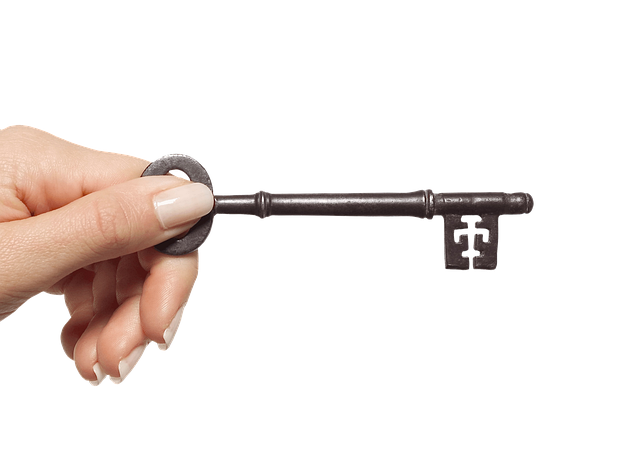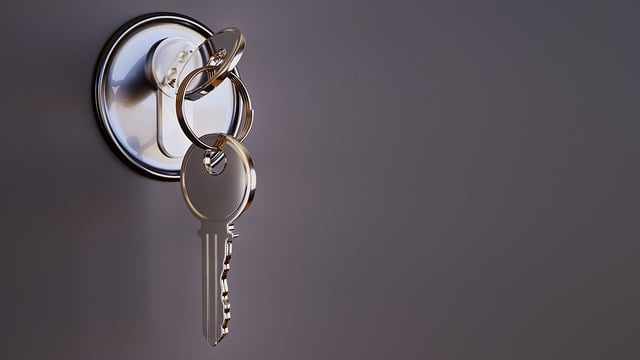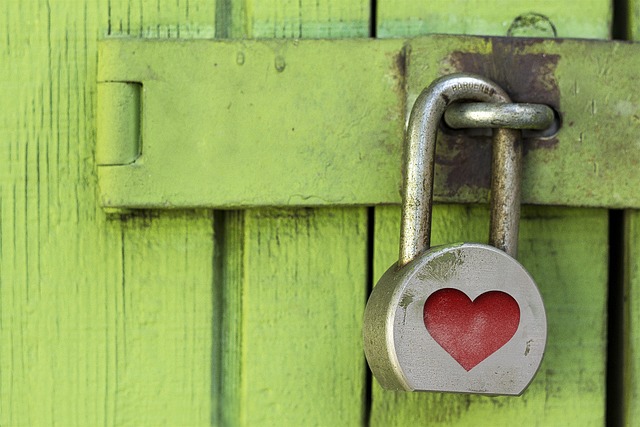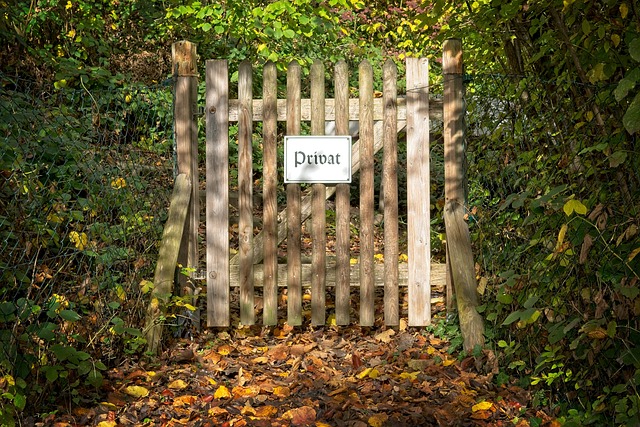Smart locks have revolutionized home security by providing advanced access control that is both user-friendly and robust. These keyless door locks replace traditional keys with digital keys, biometrics, or access codes, allowing for secure and convenient entry that can be managed remotely via smartphones. They offer real-time monitoring, temporary access granting, and immediate alerts for any security breaches. Integrating with IoT frameworks, they become part of a larger ecosystem of smart home devices, enhancing overall home security with their detailed logs and unique access codes for visitors. The benefits of smart locks include eliminating the need for physical keys, offering heightened security through encryption and advanced protocols, and providing convenience in managing who can enter your home even when you're away. With features like biometric recognition, motion sensors, and integration with cameras and alarms, smart locks ensure that only authorized users can access your property while providing a sense of control and peace of mind for homeowners. Upgrading to a smart lock system is a transformative shift in residential security, aligning with modern living's convenience without compromising on protection.
In today’s digital era, safeguarding our homes has evolved beyond traditional locks and keys. The advent of smart access controls offers homeowners a sophisticated layer of security and convenience. This article delves into the transformative impact of upgrading to keyless door locks, known as smart locks, on home entry. We will explore their role in modern home security, evaluate the benefits they bring, compare various types of smart locks suitable for home enhancement, guide you through seamless installation, and discuss advanced access control features that enhance both privacy and security. Join us as we unlock the potential of smart lock technology to revolutionize your home entry experience.
- Understanding Smart Access Controls and Their Role in Home Security
- Evaluating the Benefits of Keyless Door Locks for Home Entry
- Comparing Different Types of Smart Locks for Home Upgrade
- Installing and Integrating Your New Smart Lock System
- Enhancing Privacy and Security with Advanced Access Control Features
Understanding Smart Access Controls and Their Role in Home Security

Smart access controls represent a significant advancement in home security systems, offering homeowners both convenience and enhanced protection. A smart lock, a key component within this ecosystem, is a keyless door lock that utilizes advanced technologies like biometrics, digital keys, or secure access codes to control who enters the home. Unlike traditional locks, these devices can be remotely managed through smartphones or other connected devices, allowing homeowners to grant temporary access, monitor entry in real-time, and receive alerts for any unauthorized attempts to breach security. This level of flexibility and control over who has access to your home at any given time transforms the way we think about home entry, making it a smart choice for those prioritizing both safety and convenience.
The integration of these smart lock systems into the broader Internet of Things (IoT) allows for seamless connectivity with other smart home devices. This interconnectedness means that security can be synchronized with lighting, heating, or cameras to provide a comprehensive home monitoring solution. For instance, if an unexpected delivery person needs to enter while you’re not home, you can provide them with a unique access code that is only valid for the duration of their visit. The ability to customize access settings and keep track of who enters your home through logs and notifications enhances the overall security posture of your residence, making smart access controls an indispensable tool in modern home security strategies.
Evaluating the Benefits of Keyless Door Locks for Home Entry

Incorporating a smart lock into your home’s access control system offers a myriad of benefits over traditional keys. For one, smart locks provide enhanced security features, such as real-time monitoring and remote access control through integrated apps, which can send alerts when someone attempts to unlock your door. Unlike conventional locks, these keyless door locks can be programmed with unique codes for each user, making it easy to manage who has access to your home without the need to cut new keys or rekey the lock. Furthermore, smart locks often come equipped with advanced security protocols and encryption, reducing the risk of unauthorized access and ensuring that your home’s entry points remain secure against potential breaches.
The convenience and flexibility of smart locks extend beyond mere security; they simplify everyday life by allowing homeowners to grant temporary access, such as to service personnel or family members, without being physically present. This feature is particularly beneficial when you’re away from home or when you want to avoid the hassle of hiding spare keys outside. Additionally, smart locks can be easily integrated with other smart home systems, enabling seamless automation and control over various devices within your residence, thereby enhancing the overall access control infrastructure of your home.
Comparing Different Types of Smart Locks for Home Upgrade

When considering an upgrade to your home’s entry system with smart locks, it’s crucial to evaluate the various types available to determine which best suits your security needs and lifestyle. Smart locks, including keyless door locks, represent a significant advancement in access control technology, offering convenience, enhanced security, and remote capabilities that traditional locks cannot match. Among the most popular are biometric smart locks, which use fingerprints for authorization, ensuring only authorized individuals can enter. Another variant is the wireless smart lock, which connects to your home Wi-Fi, allowing you to monitor access through a smartphone app or web portal from anywhere at any time. These devices not only provide real-time alerts but also integrate with other smart home systems for a comprehensive security solution. Additionally, smart locks can be equipped with audio and video capabilities to visually verify the identity of visitors before granting entry, adding another layer of safety to your home upgrade. When comparing different types of smart locks, factors such as ease of installation, compatibility with existing hardware, user-friendliness, and reliability are essential to consider. Each model offers unique features, so it’s important to review specifications and customer feedback to make an informed decision that aligns with your home’s security strategy.
Installing and Integrating Your New Smart Lock System

Upgrading your home’s entry system with a smart lock offers both convenience and enhanced security. Installing a keyless door lock is a straightforward process that can be accomplished by following manufacturer instructions or with the assistance of a professional. This step not only eliminates the need for physical keys, which can be lost or duplicated unauthorizedly, but also integrates seamlessly with your existing smart home ecosystem, allowing for remote access control and real-time monitoring. Once installed, you can program user codes and manage who has access to your home through a simple app interface. Additionally, many smart locks come with advanced features such as biometric recognition or the ability to connect with smart home devices like cameras and alarms, providing a comprehensive security solution that keeps pace with modern living. It’s crucial to select a smart lock compatible with your home Wi-Fi network and any existing smart home platforms you use to ensure seamless integration and full functionality. By opting for a keyless door lock, you’re choosing a future-proof access control system that adapts to the evolving landscape of home security.
Enhancing Privacy and Security with Advanced Access Control Features

In the realm of home security, upgrading to a smart lock represents a significant leap forward in enhancing both privacy and security. These advanced keyless door locks offer features such as biometric recognition, motion detection, and real-time alerts, ensuring that only authorized individuals can access your residence. With the ability to grant temporary access codes and monitor entry attempts remotely, homeowners can enjoy peace of mind, knowing their home is protected with cutting-edge access control technology. The integration of these systems into a home’s security infrastructure not only deters unauthorized access but also provides homeowners with detailed logs of who entered and when, allowing for a proactive approach to maintaining the sanctity of one’s living space.
Furthermore, smart locks can be integrated with other home automation systems, creating an interconnected network that responds to your presence and commands. For instance, lights can turn on as you approach, or the HVAC system can adjust the temperature upon entry. These access control solutions are designed to adapt to your lifestyle, offering convenience without compromising security. The evolution of smart locks has made them a pivotal component in modern home security systems, combining seamless functionality with robust protection against intruders. Homeowners looking to upgrade their home entry points will find that smart locks offer unparalleled access control capabilities, ensuring that their homes are both welcoming and secure.
Homeowners looking to elevate their home’s security and convenience can significantly benefit from upgrading to smart access controls. By integrating a keyless door lock system, home entry becomes more secure, manageable, and tailored to the needs of modern living. This article has explored the multifaceted role of smart access controls within home security, evaluated their practical advantages, and compared various types of smart locks available for a seamless home upgrade. With a comprehensive understanding of how to install and integrate these systems, and an awareness of the advanced features that enhance privacy and security, it’s clear that upgrading to a smart lock is not just a matter of staying current with technology trends but a proactive step towards safeguarding one’s home. Smart access controls represent the future of home entry, offering unparalleled flexibility and peace of mind for any household.
